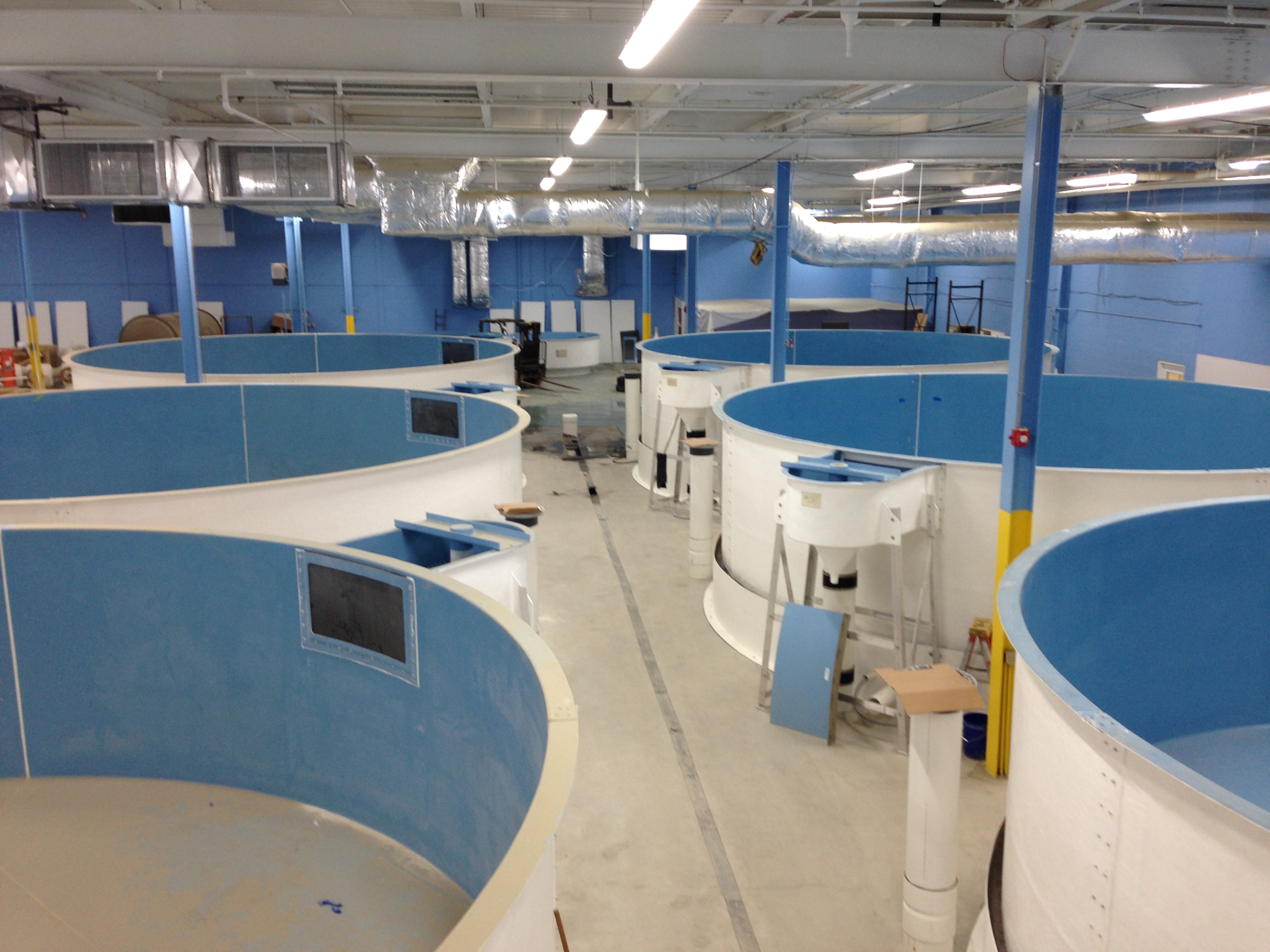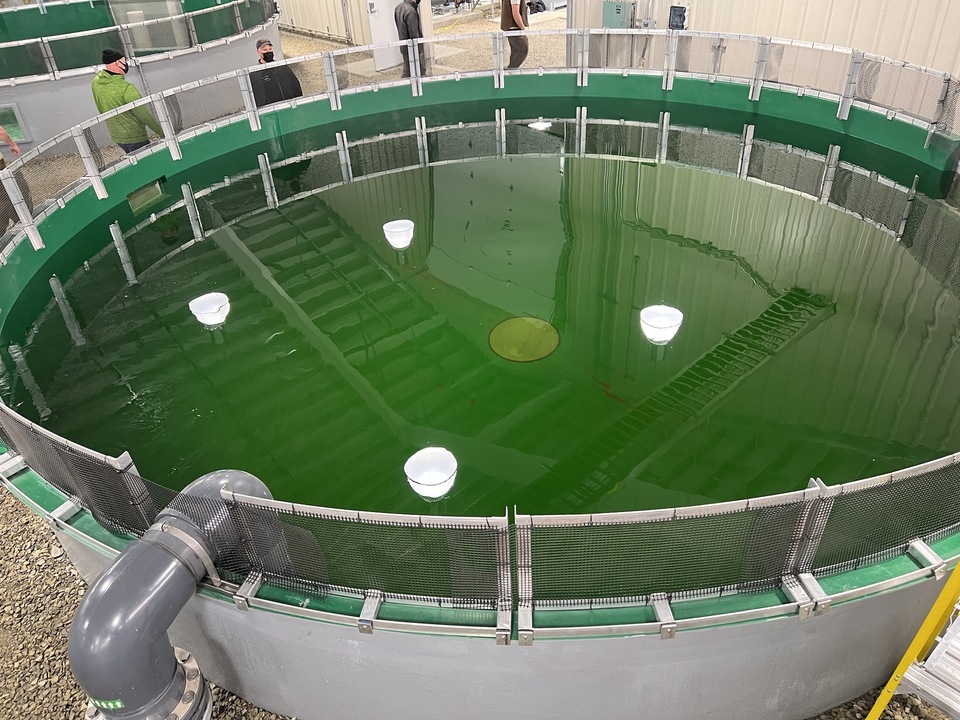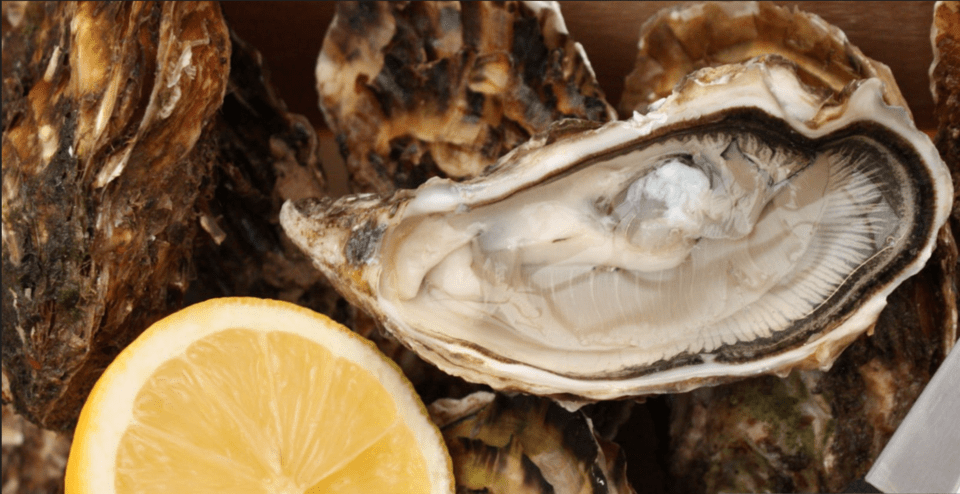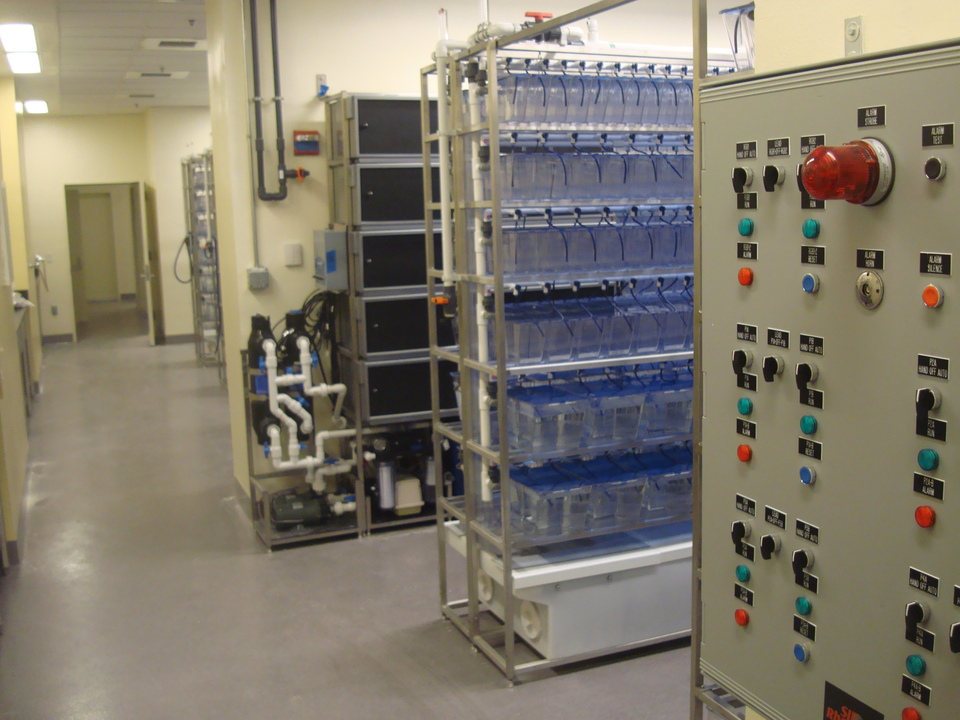Industries Served
We support a variety of industries within the Aquaculture and Aquatic animal husbandry space. From commercials Aquaculture systems, to restoration and enhancement programs, we will ensure that your resources are wisely allocated to meet your specific production goals.

Controlled Environment Agriculture (CEA)
At EDA-Aquatics, we believe that Controlled Environment Agriculture (CEA) technology, in the form of Recirculating Aquaculture Systems (RAS), and Hydroponics has the potential to dramatically improve the global food production and distribution systems while providing critical relief on our natural resources. At EDA-Aquatics, we promote reasonable scaled and distributed food production systems that are close to, and driven by, the markets they serve. When feasible, we encourage the decoupled integration of RAS and Hydroponic systems to leverage the nutrient cycles that naturally exist. Long term financial and environmental sustainability is our mission.
Conservation and Enhancement
Conserving and enhancing our natural fisheries is key to sustaining a growing global population that relies on proteins derived from our oceans and freshwater resources. Increasingly unpredictable climate patterns challenge the traditional enhancement programs to update their technology and provide some respite from the exposure of extreme conditions of our natural waterways. EDA-Aquatics has a decade of experience supporting our state and federal fish hatchery programs with RAS and PRAS technology that provides the necessary isolation from extreme conditions, while still maintaining required connection natal water and the appropriate exposure to seasonal variability.


Marine Aquaculture
EDA-Aquatics supports the development and application of non-discharge marine lease permits that can be used for shellfish and seaweed production. These production facilities provide habitat for organisms like oysters, mussels and sugar kelp that utilize the naturally occurring plankton and nutrients in the marine environment to sustain growth. EDA-Aquatics will develop your site design, manage the permit application, support public hearing, and coordinate with the regulatory agencies in charge of the lease process.
EDA-Aquatics supports the front-end hatchery design and development of broodstock and juvenile (spat) production including algae and rotifer feeding systems. EDA-Aquatics can also design the back-end land-based holding facilities for finished product storage and depuration prior to going to market. EDA-Aquatics can also design commercial scale land-based lobster storage facilities. We also have experience converting Lobster Pounds into shellfish leases in the state of Maine.
Biomedical Research
The use of Zebrafish in genetics research and drug discovery opened our eyes to the benefits of using aquatic research models over the traditional mammalian models like mice and rats. This led to a specialized need for aquatic research systems to house the research animals that maintained excellent water quality, consistent and reliable performance, and provide excellent animal welfare. Ed Aneshansley, through his involvement with companies like Marine Biotech, and Aquatic Habitats was a pioneer in research system design and equipment provider for this industry. Ed supported research facility development in this area for clients like the National Institutes of Health (NIH), Massachusetts Institute of technology (MIT), Stanford University, Yale, St. Judes Hospital and Torontos Hospital for Sick Children. EDA-Aquatics continues to support this industry with all Services listed on this page, specifically tailored to this unique research industry.

Educational and Training Facilities
EDA-Aquatics understands the importance of developing interest and passion in the industries we serve.
Founder and President Ed Aneshansley has been involved in many projects that provide industry exposure to for youth, investors, operators & government official.
This has been accomplished by providing a variety of services on projects including:
- US Conservation Fund’s, Freshwater Institute
- USDA Aquatic Research Service (ARS)
- Charter and Magnet Projects:
- Public Training Seminars for operators, investors, interested parties.
- Freshwater Institute RAS Course
- Private training for Industry Engineering Service Providers
Research
Ed Aneshansley’s research began at the University of Maine with his research on Gaffkemia, or Red Tail Disease in Lobster. He also supported data acquisition on the Lobster V-Notch Program, a conservation strategy used in the commercial fishing industry to ensure the sustainability of the Lobster industry in Maine.
Exposure to the environmental impacts of the offshore salmon pen industry in the 90’s inspired Ed to explore alternative fish production strategies like RAS. This led to a graduate degree at Cornell University in the Field of Agricultural and Biological Engineering under a New York Sea Grant Scholarship.
Here Ed conducted research on various unit treatment processes incorporated in RAS and would go on to patent and commercialize many of these products in private industry. Ed’s Masters thesis compared the growth and survivability of Walleye (Sander vitreus) fry grown in a traditional hatchery environment to those grown utilizing RAS technology.
Ed continues to research new technology focused on effluent treatment, fine suspended solids control, biofiltration, fish handing and movement technology, among others to continue to make improvements in production technology and fish welfare.
Call us at (978) 578-2589 to learn more about our commercial recirculating Aquaculture systems.
